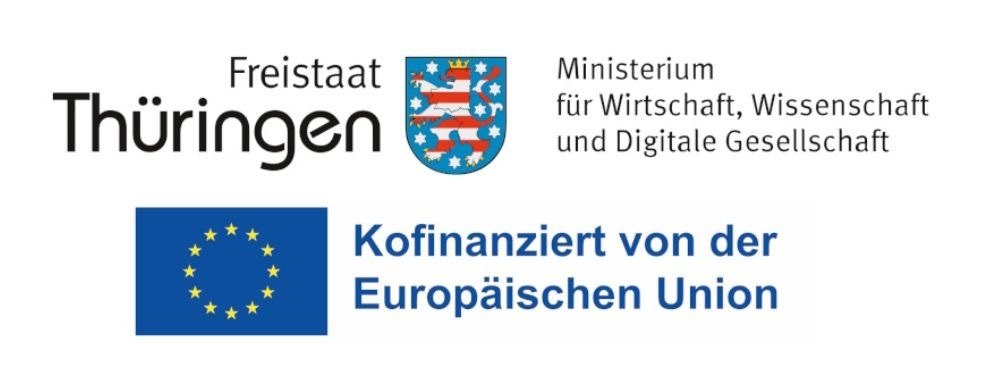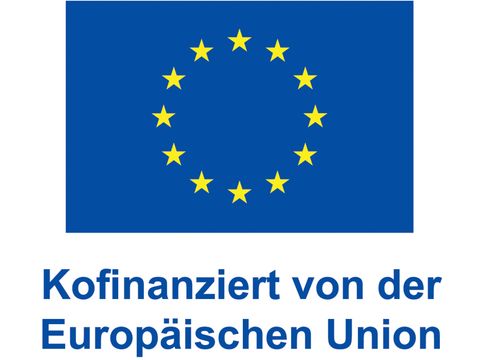Applied research for human, animal and environmental health. We are specialized in the development of new diagnostic detection methods and new analytical methods. We are also developing new therapies for animal health (e.g. horses and dogs).
We link our competences in the fields of cell biology, in vitro diagnostics, biotechnology and optical analytics internally with applications of our veterinary clinic, externally with needs of large and small companies. Our department with the laboratory for food testing also creates the interface for healthy food.
As a business-oriented research institution in the Zuse community, we are the link between science and industry. Our application-oriented research and development of processes and products thus enables rapid implementation in the market.
An overview of current investments andcurrent funding in research and consulting by the state of Thuringia can be found at the bottom of this page.
current investments in research
Peptide screening and diagnostics workstation for high-throughput molecular screening and the development of multi-parameter diagnostics
As part of the funding program of the Free State of Thuringia for the promotion of research, technology and innovation (RTI), fzmb GmbH is planning a future-oriented expansion of its technological portfolio with the implementation of a “Peptide Screening and Diagnostics Workstation”. This investment project aims to expand existing capacities in research and development to enable innovative solutions in the field of medical diagnostics and personalized medicine using peptide microarrays to develop advanced diagnostic kits. This should make it possible to quantify disease-relevant biomarkers with high precision and speed. This represents a decisive advance, particularly in the field of early detection and screening of complex diseases. Fast and accurate diagnostics will enable improved patient care through early intervention.
Supported by the Free State of Thuringia with funds from the European Regional Development Fund (funding code: 2024 WIN 0004).

Structure Platform Next Generation Sequencing
The COVID-19 pandemic highlighted the need for a rapid response to the emergence of new, pathogenic agents and/or pathogen variants.
At fzmb, we want to meet this challenge. In order to identify and characterize new pathogens (variants) more quickly, we are establishing a next generation sequencing platform. Using this high-throughput method, we can visualize even the smallest genetic changes (such as mutations) in a short time. On this basis, we can subsequently develop improved/adapted diagnostics such as rapid tests (lateral flow assays) for self-testing or ELISAs/microarraries for laboratory diagnostics.
The project, which is supported by the Free State of Thuringia, is co-financed by funds from the European Union within the framework of the REACT-EU Fund. The realization was carried out after a limited invitation to tender without a competition in accordance with ThürVVöA as a sub-threshold supply service. For this purpose, an NG sequencer from Illumina and the necessary computing hardware from Godyo GmbH were purchased. An FPLC (Äkta pure 25 M) from Cytiva was purchased for sample preparation and separation. For quality control, a TapeStation from Agilent), for DNA quantification a Qubit from Thermo Fisher Scientific and for a PCR cycler (TAdvanced from Analytik Jena) were procured. An Arpege170 cryogenic container was purchased through VWR for sample storage.

Expansion of the “Highly Specific Antibodies” technology platform
The emergence of new, pathogenic agents and/or pathogen variants requires rapid responses. We are taking up this challenge and investing in the development of specific antibodies for new pathogens. On this basis, we can subsequently develop, for example, improved/adapted diagnostics such as rapid tests.
The following equipment was procured for the expansion of the “Highly Specific Antibodies” technology platform at the fzmb: An electrofusion and electroporation generator (Fisher Scientific GmbH, Schwerte) was procured for the preparation of cells for transfection. For the selection and characterization of antibody-producing cells, a fluorescence microscope (Thunder Imager 3D Assay, Leica Mikrosysteme GmbH, Wetzlar, Germany) including components and accessories, a microscope stage with accessories (Thorlabs GmbH, Beikirchen, Germany) and the corresponding air purification system (KKT Kratochwill GmbH, Mühlhausen, Germany) were procured. The project, which is supported by the Free State of Thuringia, is co-financed by funds from the European Union within the framework of the REACT-EU Fund. The realization was carried out after a limited invitation to tender without a competition in accordance with ThürVVöA as a sub-threshold supply service.

Current subsidies in consultation
Innovation voucher for the establishment of a new R&D collaboration
Immunotherapies use the body’s own immune system to effectively combat inflammatory processes or cancer, for example. The project “Preparation of an R&D cooperation project for the development of an immunotherapy for special bone diseases” funded by the Free State of Thuringia is co-financed by the European Union. The objectives of innovation assistance include preliminary studies, intensive research into the status of these diseases, existing treatment options, market analyses, etc.

Entrepreneurial accompaniment – Subsidy according to consulting guideline
The fzmb GmbH is not only a research institute but also acts as a medium-sized company. In order to cooperate even more successfully with partners in foreign markets, we use intensive consulting and process support by independent management consultants. This project is supported by RKW Thüringen GmbH.


current state funding into research
Multi-Interact Research Group
Biointeraction technology based on 2D sensor materials for time-resolved multiparameter analysis in the pharmaceutical and diagnostics sector
The determination of biomarkers is an important factor in diagnostics and drug development. These indicators make it possible to recognize and classify pathological processes and to determine and monitor the course of therapy. Due to the diversity of these biomolecules, multiplexing technologies are very important for effective development processes in health research. In this context, a precise, kinetic determination of the interaction processes between the molecule groups should be carried out. This means that not only a high degree of parallelization of measurements, but also the simultaneous recording of the binding kinetics of the substances per measurement point provide important insights into the biological interaction. The Multi-Interact project addresses this research need and demonstrates the feasibility of the planned universal biointeraction technology using examples of various biomarkers. To measure the biological interactions, a biosensor based on graphene field-effect transistors functionalized with biomolecules via a carbon nanomembrane is being researched. These membranes are single-layer atomic layers, so-called 2D sensor materials, which enable very high sensory sensitivity and application-specific miniaturization.
Term: 01.01.2025 – 31.12.2027
Supported by the Free State of Thuringia with funds from the European Social Fund Plus (funding code: 2024 FGR 0067).

